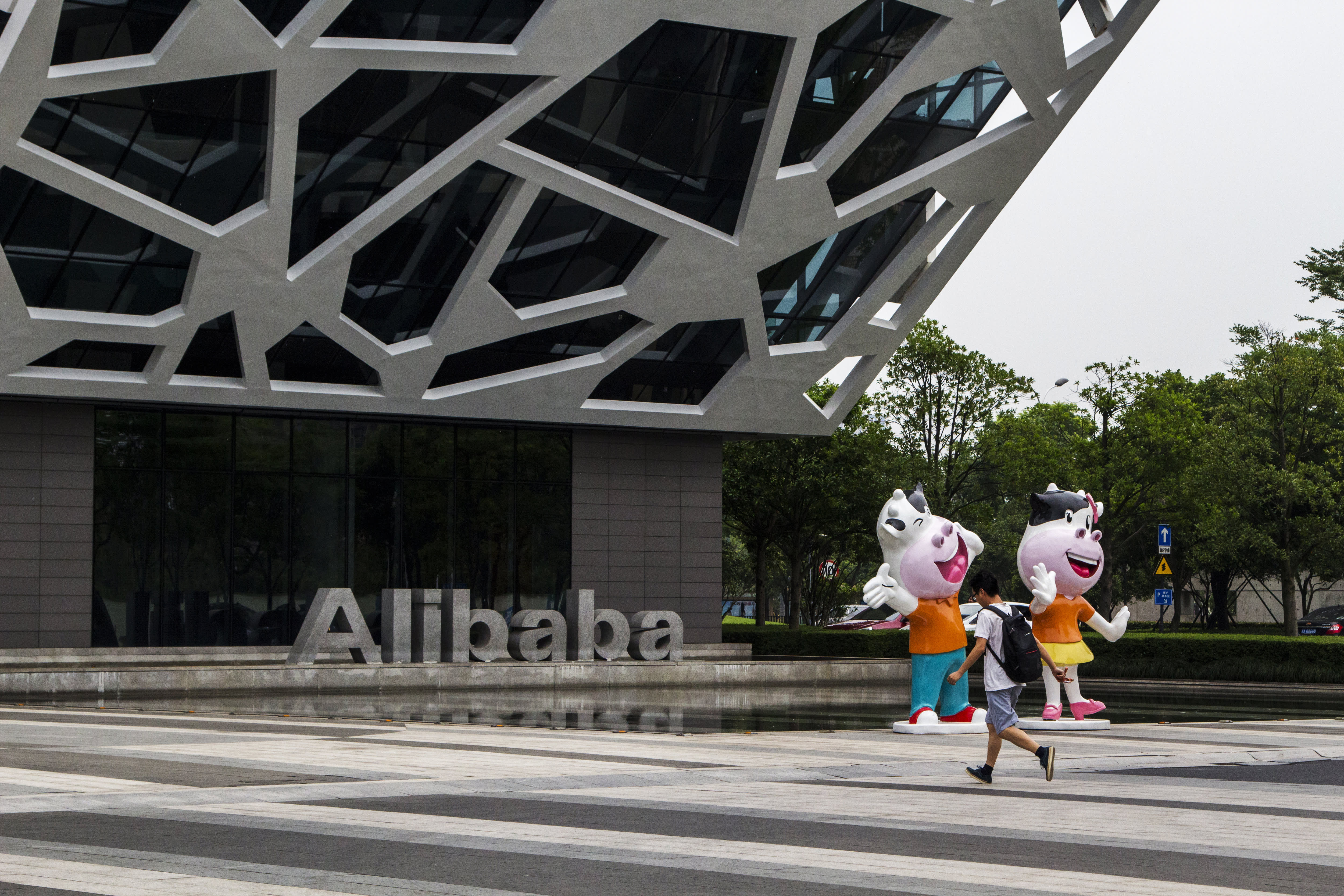Logo and mascot ‘Ali cattle’ at the headquarters of Alibaba Group in Hangzhou.
Zhang Peng | LightRocket | Getty Images
Major changes on Hong Kong’s benchmark Hang Seng index could pave the way for China’s tech giants to expand their trading presence in Asia, while giving more investors access to their stocks.
In a major revamp announced on Monday, the Hang Seng index will for the first time allow companies with primary listings elsewhere, as well as those with dual-class shares, to be included in the 50-year-old benchmark.
Companies listed in the U.S. can have a secondary listing on the Hong Kong Stock Exchange currently. But, before the latest rule change, they could not be included in the benchmark Hang Seng index (HSI), and by default, in the index funds that track the HSI.
In particular, three Chinese tech stocks — e-commerce giant Alibaba, phone maker Xiaomi and food delivery giant Meituan — are set to reap the benefits of being included.
Shares of Hong-Kong listed Alibaba and Xiaomi were up more than 2% by Tuesday afternoon, while Meituan rose 1.65%.
All three companies are among the top five stocks traded in Hong Kong by value every month, according to Reuters. Collectively, they represent 15% of the total market capitalization of Hong Kong-listed companies, investment bank Morgan Stanley said.
Alibaba, Xiaomi and Meituan are companies with dual-class shares — or those with two classes of shares that have different voting rights, according to Reuters. One class allows founders and executives of the company to have more voting power, while the other class is issued to the general public, with limited or no voting rights.
Additionally, Alibaba has a secondary listing in Hong Kong. It first listed in New York in 2014.
Why this matters for investors
If stocks of Alibaba, Xiaomi and Meituan are included under the Hang Seng index, they will have a bigger presence in index funds that are tracking the HSI.
That means that those stocks will now be in the portfolios of more investors – those who have bought into those index funds, in particular exchange-traded funds (ETFs). More investors have in recent years flocked to such passive investing by investing into such funds, as opposed to individual stock-picking.
That inclusion could bring in $3.7 billion worth of passive fund inflows for those three companies, according to an analysis by Morgan Stanley. Of that, $1.9 billion will go to Alibaba, $1.3 billion to Meituan and $0.5 billion to Xiaomi, the investment house said.
As of April 30 this year, total assets under management in those ETFs linked to the Hang Seng were worth $18.6 billion, according to Morgan Stanley.
A more balanced Hang Seng index
The Hang Seng index currently tracks a list of 50 stocks.
The index is currently tilted toward financial services companies, which have an overall allocation of 47.8%, but that inclusion of other stocks would help the Hang Seng be “more balanced” in terms of sectors, Morgan Stanley said.
“We expect bigger representation of internet/technology companies in the index to be long-term positive for Hong Kong equity market to attract more investors and capital,” the investment bank said in a Monday report.
The new changes will be implemented from August, the Hang Seng index provider said in a statement.
After the new inclusion kicks in, Morgan Stanley expects the share of financials to go down to 41.7%, with communication services and consumer stocks forming the rest.
